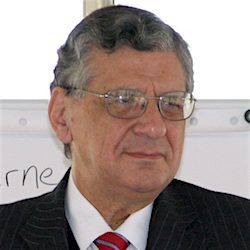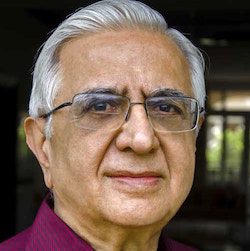How should diplomats respond to today’s cyber challenges? What topics are on the international digital agenda? What is the interplay between international, regional, and national digital policy processes?
Asia Cyber Diplomacy Workshop
Diplomacy: Between Tradition and Innovation
Date: 28–29 August 2015
Venue: Bangkok, Pullman Bangkok Hotel G
Organised by DiploFoundation in partnership with the Ministry of Foreign Affairs of the Netherlands and Devawongse Varopakarn Institute of Foreign Affairs, Ministry of Foreign Affairs of Thailand
New: See photos, download the report
Background
This dynamic workshop will address evolving cyber issues for modern diplomacy. Diplomatic services worldwide face the challenge of developing capacity and approaches to cover the growing relevance of the Internet for economic and societal development. Internet policy is emerging on global diplomatic agendas at global and regional levels. The Bangkok workshop will address cyber diplomacy from both conceptual and practical aspects. Participants will be immersed in simulation exercises and other activities aimed at demonstrating the specificities of cyber diplomacy.
Who should attend?
The workshop is designed for diplomats and government officials dealing with the international aspects of digital developments, including trade and investment, security, and culture. In particular focus will be international legal developments of relevance for promoting digital growth and innovation.
Methodology
This training workshop will give participants an overview of the multidisciplinary field of cyber diplomacy (including technical, legal, economic, sociocultural, and developmental aspects). Particular emphasis will be put on cybersecurity and promoting cooperative and comprehensive approaches for today’s cyber challenges. The programme combines presentations, a dynamic policy dialogue, practical demonstrations in the CyberLab, a case study, and simulation exercises.
Draft programme
Day 1 (Friday 28th August)
|
09.15–10.00 |
Welcome coffee with CyberLab presentation: The future is now – the Internet of Things, 3D printing, and Bitcoin |
|
10.00–10.15 |
Welcome remarks
|
|
10.15–11.30 |
WHAT are the main cyber diplomacy issues? (Mapping cyber challenges for modern diplomacy)
|
|
11.30–11.45 |
Coffee break & CyberLab |
|
11.45–12.30 |
Applicability of international law to cyber challenges |
|
12.30–13.30 |
Lunch break |
|
13.30–14.30 |
WHERE is cyber diplomacy performed?
|
| 14.30 – 15.00 |
HOW: Bringing together technical, diplomatic and security aspects of digital policy Mr Wanawit Ahkuputra, Deputy Executive Director, Electronic Transactions Development Agency, Thailand & Member of the Government Advisory Council at ICANN |
|
15.00–15.30 |
Coffee break with CyberLab presentation: a peek into the Dark Web and tools for cyber attacks |
|
15.30–16.15 |
WHO are the main actors in cyber diplomacy?
By Mr Moedjiono Sardjoeni Matdullah, the Senior Advisor for International Relations and Digital Divide, Minister of Communication and Information Technology of the Republic of Indonesia |
| 16.15-18.15 |
Simulation exercise: Negotiating an international cyber declaration
|
| 18.15-18.30 | Summary of the day |
| 20.00 | Workshop dinner |
After the introductory remarks, participants will engage in a full immersion simulation exercise on cyber diplomacy – negotiating an international cyber policy document. Participants will be assigned tasks to prepare for the second part of the exercise. The simulation exercise will continue on Day 2.
Day 2 (Saturday, 29th August)
|
09.00–10.30 |
Simulation exercise (continuation) Participants complete the simulated negotiations, and discuss the lessons learned, during a debriefing session with experts |
|
10.30–11.45 |
Coffee break & CyberLab |
|
10.45–12.15 |
How can national governments address the challenges of cyber diplomacy?
|
|
12.15–14.30 |
Certificate ceremony and lunch reception |
Registration: Due to high interest and limited capacity, registrations are now closed.
For additional information, contact Barbara Rosen Jacobson
This workshop is free of charge. Please note that the organiser cannot cover any travel or accommodation costs – these are the responsibility of the participants.
Previous events: June 2015 – Vienna Cyber Diplomacy Day








